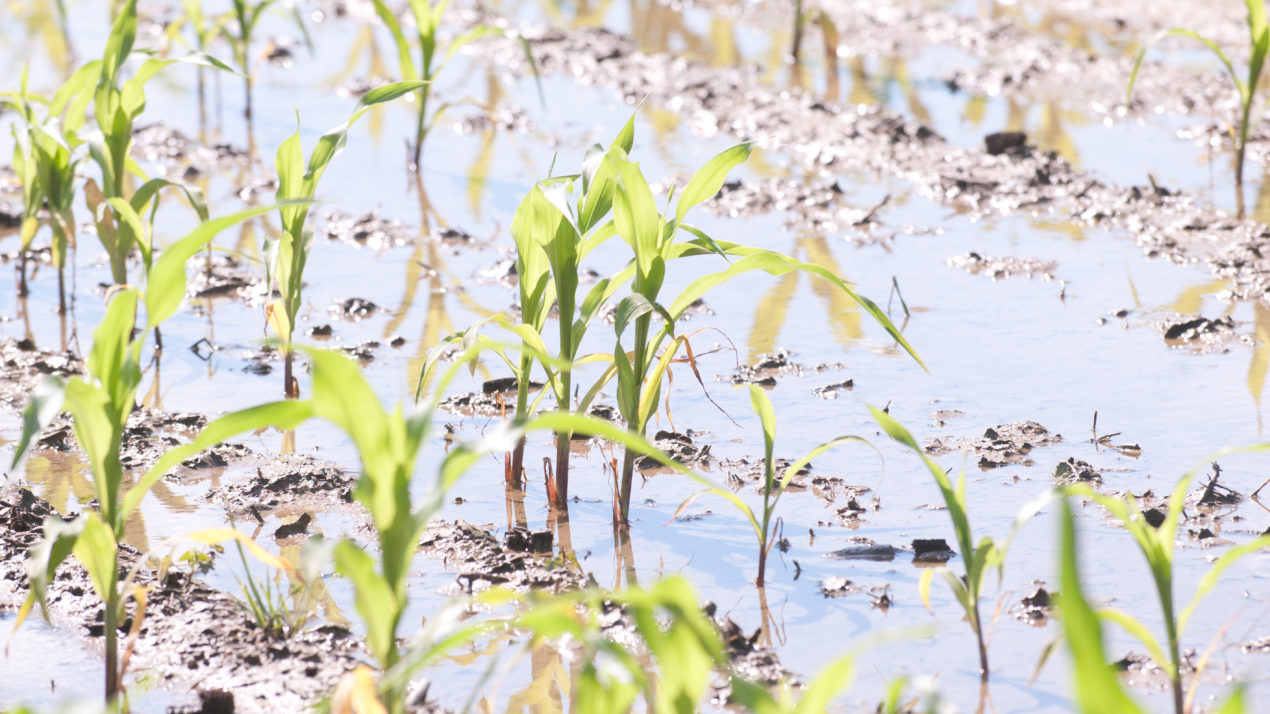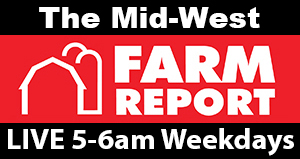
Severe weather – damaging storms and more cool, wet weather keeps slowing down field progress for Wisconsin farmers.
According to the Wisconsin Ag Statistical Service, there were fewer than 3 days suitable weather-wise last week for any field work at all. Michigan and Wisconsin are apparently the only two states that are lagging behind the five year average, and year ago figures, for planting progress.
Fieldwork was slowed as heavy rain and severe thunderstorms lashed the state. Northern Wisconsin was the hardest hit by this wave of bad weather, with reporters noting up to 12 inches of rainfall for the week. Farms in Barron and Rusk Counties were struck by a tornado on Tuesday evening. Flooding, large hail and strong winds also damaged fields, trees and farm buildings around the state. Cold temperatures and standing water had farmers in many areas concerned for recently planted fields. Several reporters commented that the first crop of alfalfa was approaching an ideal maturity for cutting, but soils were too wet to support machinery. Warm, dry weather is needed to drain saturated fields.
Topsoil moisture supplies were rated 0 percent very short, 0 percent short, 56 percent adequate and 44 percent surplus. Subsoil moisture supplies were rated 0 percent very short, 0 percent short, 65 percent adequate and 35 percent surplus.
As of May 21, spring tillage was 81 percent complete statewide, 11 days behind last year but 1 day ahead of the five-year average.
Corn planting was 65 percent complete, 10 days behind last year, and 3 days behind the average. Corn emerged was at 21 percent, 5 days behind last year and 2 days behind the average.
Twenty-nine percent of the states’s expected soybean acres have been planted, 8 days behind last year, and 4 days behind the average. Three percent of the state’s soybeans have emerged.
Oats planting was reported as 88 percent complete, 8 days behind last year, but 1 day ahead of the average. Oats emerged was at 61 percent, 7 days behind last year and 2 days behind the average.
Ninety-three percent of the potato crop was planted, slightly behind last year.
Pasture condition remained at 81 percent good to excellent.
Winter wheat was 67 percent in good to excellent condition statewide, compared to 71 percent good to excellent last week.
The first cutting of alfalfa was reported as 5 percent complete. Hay alfalfa freeze damage was rated 5 percent severe, 10 percent moderate, and 26 percent light as of May 21. Fifty-nine percent of the state’s alfalfa was reported undamaged. All hay condition was reported 71 percent good to excellent.
